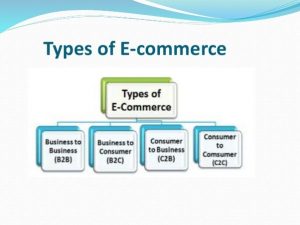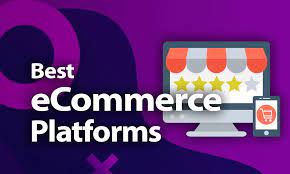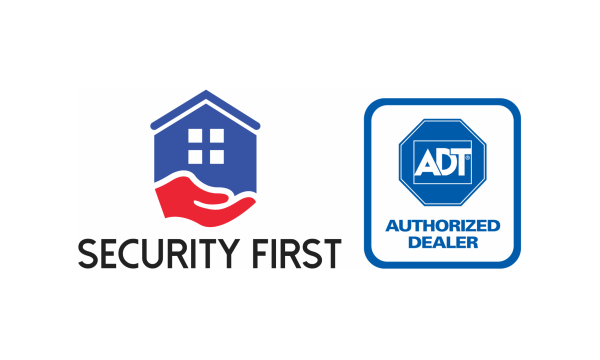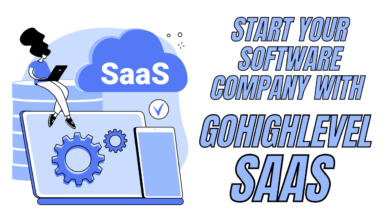eCommerce Affiliate Network | 10 Affiliate Platform

Affiliate programs that allow publishers to promote eCommerce-related offers are connected through eCommerce affiliate networks. Picking the right platform for an eCommerce business is a difficult decision to make since there are many factors to consider.
Choosing the right eCommerce platform is similar to selecting the greatest mobile device. We’re going to help you with it today! The following is a detailed comparison of the most popular eCommerce platforms.
Table of Content:
What is eCommerce and How it’s work?
Can I make money with eCommerce?
How do I start an eCommerce business?
What is an eCommerce affiliate network/platform?
Best Ecommerce affiliate networks?
10 Tips for Starting an eCommerce Business
What is eCommerce and How it’s work?
Electronic commerce or eCommerce is a business model that allows companies and individuals to buy and sell things over the internet. It controls in major market segments: Business to business (B2B), Business to consumer (B2C). Consumer to consumer (C2C).
A good e-commerce website can enable you in learning the fundamentals of your clients. E-commerce for SEO is a difficult sector to master, and with millions of online retail sites to choose from, it’s not always easy to stand out. Applying these best practices will help you get off to a good start.
Examples: Online merchants such as Amazon, Flipkart, Myntra, Paytm Mall, and sellers of digital goods such as ebooks are examples of E-Commerce.
What is E-Business?
E-Business is a broad notion that is regarded as a superset of E-Commerce. It refers to conducting all types of E-business activity over the internet.
And e-business transactions are not restricted to purchasing raw materials/goods, customer education, supply activities, buying and selling products, and performing monetary transactions over the internet.
What is eCommerce SEO, and is SEO important for eCommerce?
- Pick the right keywords.
- Conduct competitor research.
- Focus on homepage SEO.
- Simplify your site architecture.
- Optimize product pages.
- Use responsive design.
- Reduce page load speed.
- Create backlinks.
Can I make money with ecommerce affiliate programs?
It really depends on your product, marketing, and niche but on average a new eCommerce company can make around $39,000 in their first month of business and can grow that income from there. You can sell top-selling items online like Smartwatches, healthy and beauty products, hobbies, crafts, and all digital products easily.
Normally one online retailer’s profit margin is around 44%, while other industries, such as general retail and automotive, hover between 20% and 25%.
What is an eCommerce Affiliate Network?
E-commerce affiliate networks link publishers with affiliate programs that authorize them to promote eCommerce-related offers. eCommerce affiliate programs may be a profitable niche in mobile-phone affiliate marketing with high payouts, especially as they promote the upcoming popular gadgets, websites, and other online offers to mobile consumers. There is some example like, Amazon-Flipkart-eBay-Fiverr-Upwork-Olx-Quikr, etc.
What is eCommerce Affiliate Marketing?
Affiliate marketing with an internet component is known as eCommerce affiliate marketing. A commission is earned when an online merchant promotes another company’s products, services, or website on their own website. That’s all there is to it! and on the other side, Publishers are linked to affiliate programs that allow them to promote eCommerce-related offers through e-commerce affiliate networks.
Why do we use affiliate marketing in an e-commerce website?
So, in order to attract new clients and increase sales, eCommerce businesses need affiliate marketing. We use content marketing, sponsored ads, and other methods to persuade people to buy from us.
Affiliate marketing is another essential strategy to increase revenue that eCommerce business owners should not ignore.
How do I start an eCommerce business?
eCommerce is a faster buying process and affordably advertise marketing. Customers are flexible.
You can start an eCommerce business with 6 easy step
1: Analysis of the eCommerce space and find your niche
2: Select your business name and choose a legal form
3: Apply for an EIN
4: Obtain business permits and licenses
5: Choose your eCommerce platform and create your first website
6: Create a list of your products
What is an eCommerce platform?
A simple definition of an eCommerce platform or eCommerce network is, it is a software application that authorizes online businesses to control their website, marketing, sales, and operations.

There are 6 types of e-Commerce:
- (B2B) Business-to-Business
- (B2C) Business-to-Consumer
- (C2C) Consumer to Consumer
- (C2B) Consumer to Business
- (B2A) Business to Administration
- (C2A) Consumer to Administration
Best eCommerce Platform Comparison:
We opted to focus on a few variables when selecting the final tools: popularity, general reputation, functionality, customer service, budget, and ease of use – all based on preliminary testing and past experience with the platforms.
Ecommerce Affiliate Network Offers And Payouts
There are some of the biggest affiliate eCommerce that offers along with their platform.
Shopify: give $58 for each additional user – A minimum of $25 in credits
Amazon Associates: Earn up to 10% in referral fees- At $100
eBay Partner Network: Driving traffic to listings – $25 is the threshold
Apple Affiliate Program: Making money depends on the number of visitors that click.
Apple text links or banners: This differs by country and currency
Walmart – Affiliate Program: You can easily earn 4% on each eligible sale – Payout at $50
Target Affiliate Program: In this eCommerce affiliate network program, one can earn Up to 9% in commission on products – Using the corresponding commission rate
Coinbase: If the referred individual initiates a buy or sell of $100-Low payout at $10
ClickFunnels Affiliates: you can earn Up to 40% recurring commission per month – Referrals, SAAS at a $50 threshold
Bluehost Affiliate Program: In this program who clicks through links and signs up, receive $65 – Referrals, payout at $65
Wayfair Affiliate Program: You can earn Up to 6% on commissions and a 30-day referral period – Referrals, payout on each order
Top eCommerce affiliate networks:
Here are the top eCommerce affiliate networks that cover offers for all major mobile operating systems.
The Amazon Associates Program is one of the largest and most successful online marketplaces that allow website owners and bloggers to create unique links and earn referral fees when customers click through and buy products from Amazon.
Alibaba – is making the world’s biggest CPA affiliate marketing marketplace. Their first affiliates earn exclusive commissions up to US $ 7 per lead.
eBay partners – send their users to eBay global marketplace. Average of those users will Probable buy something after being referred to our site.
Jingdong (JD) – The JD and Joybuy affiliate program allows free membership for all affiliate publishers. No matter you are a large network, a content site, or a blogger
Zappos – When enrolling in their affiliate or referral program, you can earn commissions by referring new customers through the Zappos website.
Rakuten – They work with advertisers to create an affiliate marketing strategy. They are highly inflexible in their literature that you work with affiliate publishers that are closely related to your business.
Home Depot – By joining their affiliate program, you can start earning a profit on every certified sale you refer to home depot. Home Depot is one of the biggest brands in the US for home furniture
Flipkart – is another great way for you to earn commissions just by placing product banners or unique links on your website to refer users to the Flipkart website. You can easily earn up to 13% whenever a user clicks on the banner or link and makes a purchase on our site.
Best Ecommerce affiliate networks: The Top Picks
Shopify (and Shopify Plus): Shopify is now the leading eCommerce solution in the market with over 1 million businesses across 175 countries. This is one of the best platforms for beginners and small=to-medium size businesses. You can sell or buy Beauty & Cosmetics, Consumer Electronics, Fashion & Apparel, Food & Beverage, and Home Furnishing products.
BigCommerce: was established in 2009, over 150 countries and plenty of industries use BigCommerce to create beautiful, engaging online stores. BigCommerce is a great way for SMBs & MM who need a lot from their eCommerce platform with large or complex catalogs.
Magento: is also one of the highly popular open-source eCommerce affiliate networks or platforms in the world. It was initially delivered in 2009, Magento is great for small-to-medium businesses that have already established demand, besides the time, manpower, and skill to build their own site.
Woocommerce: is an easy free, open-source WordPress shopping cart plugin owned and developed by WordPress. It is one of the highly popular eCommerce options on the market and runs on 33% of all stores on the internet.
Squarespace: This platform is a New York-based software service company that delivers website and eCommerce store building and hosting to customers. Customers use drag and drop capability and pre-built website templates to create their web pages. Squarespace is highly appropriate for entrepreneurs and small business owners with basic e-commerce needs.
Wix: is a cloud-based website builder that gives users to create online stores through drag-and-drop tools. It has a large range of templates and designs that make it simple for beginners and resource-strapped business owners to build a compelling and functional website. Wix is a great eCommerce platform for small businesses that don’t have access to a dedicated web designer.
Big Cartel: Big Cartel is the best platform for artists and entrepreneurs who are looking for an alternative to Etsy, started in 200., This SaaS site builder focuses on creators who need a space to sell artwork, clothing, jewelry, photo prints, etc.
Salesforce Commerce Cloud: previously known as Demandware, is an enterprise-level eCommerce marketplace that gives a full range of features and capabilities that make it a perfect fit for multi-national companies that process millions of dollars in orders.
Volusion: This site was first created in 1999, and is one of the longest-lasting platforms in the market. It is still as popular and stable despite the entrance of recent competitors like Shopify and Wix, with over 30,000 stores using the system and having generated over $28 billion in sales. Volusion is one of the great eCommerce affiliate networks or platforms for startups and small businesses who want to get started quickly but still have room to grow within their chosen solution.
10 Tips for Starting an eCommerce Business
E-commerce will help you to enlarge your business at the lowest cost. Here are some 10 blink points below that you need to develop before starting an e-commerce business.
1. Key Strengths of the Marketplace
First, choose your marketplace according to the nature of the product, you want to sell.
2. Look up the caliber and level of your Competitor
This will assist you to make your own policies and strategies to market your product or services and beat the competition.
3. Catalog and Presentation Catches the Eyeball Attention
If you perfectly neatly give details about your product, then you can grasp the attention of your customers and they will definitely buy your products.
4. Merchant Support Service
You need to select a merchant that handles your customers’ queries and helps you in making policies, displaying your products, and giving discounts.
5. ROI, Fee, and Margins
You must also determine which marketplace is giving better ROI in terms of visibility and sales.
6. Shipping Charges and Mechanism
if you do not fancy getting into the hassle of shipping, let the marketplace do it and you just need to pay the charges for it. For instance, Flipkart normally charges 10%, if you ask to ship your product
7. System Access and Control
You have to know how much system access and controls a marketplace is giving to you. For Example, Amazon never shares the email Id of their buyers, as they say, it is not your buyer it’s our buyer. They are just taking your product over others.
8. Payment Mechanism
You must care for the payment mechanism that the marketplace gives because you are investing in it; so, you’ll like to get good returns at a fixed interval of time.
Amazon takes 15-90 days to pay back their customers, Flipkart takes 45-120 days and ShopClues takes 30-90 days.
9. Returns and Refunds
From time to time, the marketplace offers a very tiny margin and it takes away all your money from the refund and returns cycle.
An eCommerce affiliate network is a vital part of business
Our Most Popular Blogs:
- Affiliate Marketing Programs- 5-Step Formula To Find Your Niche
- Amazon Affiliate Program – How to Find Niche | Startup Plan
- Google Affiliate Marketing – 6 Blink Ways To Earn Money- Startup Plan
- WordPress Affiliate Marketing programs – How to find Blink Niche | Startup Plan
- eBook affiliate program – For-Profit and Read Fun
- YouTube Affiliate Program – Startup
- Podcasting – What You Need to Know Before Start Earning
- Influence Marketing – How to Find Niche | 7 Tips & Tools for Startup
- eCommerce Affiliate Network – 10 Blink Steps to Start Business
- 5 Best-Paid Web Hosting Affiliate Programs in 2021
- How to get started with Affiliate Marketing – Follow these seven easy steps.







